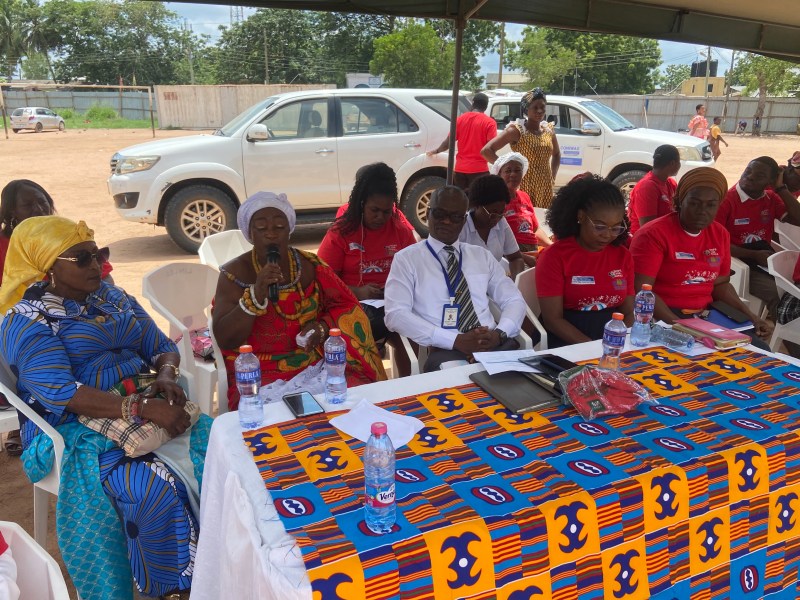By Franklin ASARE-DONKOH
Students from Amasaman Cluster of Schools in the Ga West municipality in the Greater Accra Region, executives and officials from the Coalition of Non-Governmental Organizations (NGOs) in the Water and Sanitation (CONIWAS) sector and its partners have organized a day’s durbar to commemorate the 2024 edition of the Menstrual Hygiene Day (MHD) with a durbar.
The durbar brought together Queen mothers, opinion leaders, traders, Municipal Planning Director of the Ga West Municipal Assembly, Staff of Municipal Education Service, some members of the Amasaman branch of the National Association of Tailors and Dressmakers and others.

Addressing the gathering, the Municipal Education Director of Ga West Municipal Assembly, Mr.
Victor Noye Tawiah has called for more improved Water, Sanitation and Hygiene (WASH) facilities in schools.
He also appealed to benevolent organizations to help provide school going adolescent girls with sanitary pads.
According to him, many more adolescent girls keep missing school periods thereby putting up poor performance at the end of school calendar due to non availability of sanitary pads.
“Lack of sanitary pads has been widely reported to be a major contributory factor to school absenteeism among girls in their menstrual period. Furthermore, research has documented menstruating girls’ experiences of shame, fear, and confusion across many communities in Ghana,” he reiterated.
On her, the Executive Secretary of CONIWAS, Madam Basilia Nanbigne announced that her office is in talks with the Association of Ghana Industries (AGI) in a view to encourage more local companies to go into the production of sanitary products in order to bring prices of sanitary products down.
Reacting to the high cost of sanitary products even though some taxes on the products have been scrapped by government, the Executive Secretary of CONIWAS explained that prices of sanitary products are still high because most of the products are imported from overseas.
“It’s true government has scrapped tax on locally manufactured products but not on imported products. To beat the price of sanitary products down, we need more local manufacturers to venture into the production of pads,” she added.
Meanwhile, the Queen Mother of Papasie, NAA Baawa II has admonished parents not to reneged upon their responsibilities to protect their children.
According to her, many girls are being lured into sexual activity with the intention of getting money to buy sanitary goods due to the failure on the part of their parents to need their needs.
“Lots of schools going girls in our communities are being involved in unprotected sex because they only need as little as ghc20 to buy sanitary pads which their parents have failed to provide them.
As parents we must behave and act accordingly in providing the needs of our children as well as in protecting their wellbeing,” Naa Baawa II retorted.
The MHD was first observed in 2014. The commemoration of the day was initiated by the German-based NGO WASH United to break taboos surrounding menstruation, raise awareness of the importance of good menstrual hygiene management worldwide.
The date, May 28, reflects the average length of the menstrual cycle and the menstruation period.
The global theme for the 2024 edition of the MHD commemoration is “Together for a Period Friendly World” while the national theme for the celebration is “Imagine a Period Friendly Ghana.”